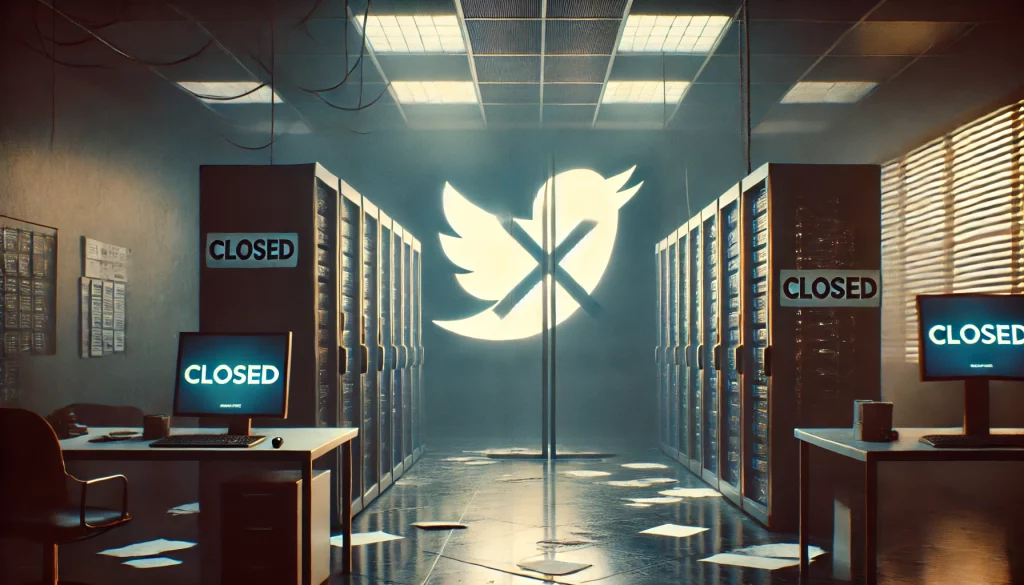Combating Radicalisation and Protecting Society

In an age where information is power, social media platforms wield an extraordinary influence over public discourse. Once heralded as champions of free speech and democratic values, platforms like Twitter (now rebranded as X) have increasingly become tools for spreading hatred, division, and dangerous propaganda. Under the ownership of Elon Musk, Twitter/X has transformed into a platform that amplifies far-right ideologies and undermines societal cohesion. It is now imperative for governments around the globe to take decisive action and remove access to this radicalised mouthpiece.
A Platform Transformed
Twitter, at its peak, was a place where individuals could share ideas, challenge norms, and hold the powerful accountable. However, since its acquisition by Elon Musk, the platform has taken a sharp turn. Musk’s self-proclaimed commitment to “free speech absolutism” has created a toxic environment where hate speech, conspiracy theories, and far-right propaganda thrive. Content moderation has been gutted, key staff have been removed, and accounts that once faced justified bans for inciting violence or spreading disinformation have been reinstated.
Under Musk’s leadership, Twitter/X is no longer a forum for healthy debate but a breeding ground for polarisation. This shift cannot be dismissed as a mere by-product of free speech. Instead, it reflects deliberate choices by the platform’s leadership to cater to a specific agenda—one that prioritises outrage over accountability, division over unity, and chaos over constructive dialogue.
The Consequences of Radicalisation
The proliferation of far-right content on Twitter/X has tangible consequences. Hate crimes and violence are often preceded by the normalisation of hateful rhetoric, and social media platforms play a critical role in fostering this normalisation. From far-right ideologues recruiting followers to the spread of harmful misinformation on topics like climate change, public health, and immigration, the platform amplifies voices that actively seek to destabilise society.
For democracies, the stakes are even higher. Twitter/X has become a vehicle for disinformation campaigns aimed at undermining electoral processes and eroding trust in public institutions. Left unchecked, this creates fertile ground for authoritarianism, as false narratives are weaponised to weaken the fabric of democracy.
It is not enough to view this as a free-market issue or to hope that users will simply migrate to other platforms. The scale of Twitter/X’s influence demands that governments step in to protect their citizens from harm.
The Responsibility of Governments
The role of governments in this scenario is clear: to protect the public interest by regulating platforms that fail to act responsibly. While some countries, particularly within the European Union, have taken steps to introduce stricter oversight of online platforms, these measures are not sufficient in the face of the current threat posed by Twitter/X.
Governments must now consider the drastic yet necessary step of restricting or even removing access to the platform within their borders. This is not a call for censorship but a recognition of the extraordinary harm caused by a platform that has abdicated its responsibility to society. In much the same way that harmful substances or unsafe products are banned for public safety, platforms that incite hatred and division must face consequences.
Such measures would not be without precedent. Countries like China and Iran have long restricted access to foreign platforms, albeit for authoritarian reasons. Democracies, however, can and should act from a position of ethical responsibility, prioritising societal well-being over corporate profits. The Digital Services Act in the EU and the UK’s Online Safety Bill are steps in the right direction, but these frameworks must now evolve to address the unique threat posed by Twitter/X.
Elon Musk’s Role in Spreading Division
Elon Musk’s tenure at Twitter/X has been marked by recklessness and a disregard for the broader impact of his decisions. Musk has consistently used the platform to amplify far-right talking points, attack journalists, and mock individuals who hold him accountable. By aligning Twitter/X with his own political ideologies, Musk has transformed the platform into his personal mouthpiece for hatred and division.
What makes this even more dangerous is Musk’s global influence. As one of the world’s most prominent figures, his endorsement of radicalised content gives legitimacy to harmful ideologies and emboldens extremists. This is not a matter of political preference; it is a question of accountability. Leaders who wield immense power, whether through wealth or technology, must be held to the highest standards.
A Call to Action
The removal of access to Twitter/X will undoubtedly be met with resistance from those who view it as a suppression of free speech. However, free speech does not equate to a free pass for platforms to facilitate harm. True free speech must exist within a framework of accountability and responsibility, ensuring that it does not come at the expense of societal stability.
The alternative is to continue down a path where disinformation, hatred, and radicalisation dominate public discourse. This is a risk no responsible government should accept. By acting decisively, countries can send a powerful message: that platforms which refuse to act responsibly will not be given a free pass to operate within their borders.
Final Thoughts…
The time for complacency has passed. Twitter/X, under Elon Musk’s ownership, has become a dangerous force in the digital age, eroding trust, spreading hatred, and undermining democratic values. The platform’s unwillingness to tackle far-right radicalisation is not a reflection of free speech but of negligence and complicity.
Governments must take a stand, not just to hold Twitter/X accountable but to set a precedent for the future of digital platforms. By removing access to radicalised platforms, we can protect society from harm, uphold democratic values, and ensure that the digital world remains a place for constructive dialogue, not a tool for division.





